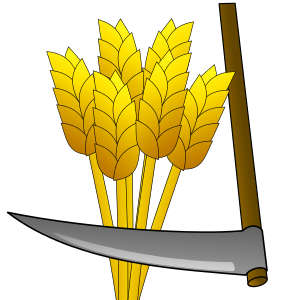 Schizophrenia is a disease of the brain. It is a progressive psychotic mental disorder. This illness causes the schizophrenic to struggle to differentiate between reality and fantasy, with hallucinations, and delusions, creating feelings of paranoia, suicide, and social withdrawal. Schizophrenia can be managed with neuroleptic medications to help relieve the psychosis symptoms but there are serious side effects.
Schizophrenia is a disease of the brain. It is a progressive psychotic mental disorder. This illness causes the schizophrenic to struggle to differentiate between reality and fantasy, with hallucinations, and delusions, creating feelings of paranoia, suicide, and social withdrawal. Schizophrenia can be managed with neuroleptic medications to help relieve the psychosis symptoms but there are serious side effects.
“Schizophrenia” . . . reports of complete remission.
Studies have shown that wheat has had a measurable effect on people with the schizophrenia disorder. Wheat does not bring on diseases and disorders such as Schizophrenia, Autism, and ADHD, but it does exacerbate the situation making the symptoms worse. Wheat has been proven to have an effect on a person’s mental function. In clinical trial cases of wheat removal from individuals with schizophrenia there have been reports of complete remission. For example, the case of a 70 year old woman who eliminated wheat from her diet and within 8 days of stopping the wheat she experienced complete relief from her delusions, hallucinations, and suicide attempts over a 53 year period (Wheat Belly). In the 60’s a Doctor in Philadelphia, at the VA hospital conducted an experiment by removing all wheat products from the meals of patients with schizophrenia. The results were documented with measureable improvements of decreased hallucinations, and detachment from reality (quoted from “Wheat Belly”).

Studies show that Autistic children can also potentially experience the effects of wheat with an impaired ability to interact socially and communicate. At one time this condition was rare but now in the 21st century it has escalated to 1 in 150 children. Again, measurable improvements have been found with clinical trials such as the case with 55 Danish children when eliminating gluten along with dairy in their diet.
Schizophrenia – Reversing the effect of opiate wheat
People suffering from Schizophrenia seem to have a lot of opioid gluten peptides in their urine. In many cases treatment of the drug Naloxone is administered to block and prevent the binding of wheat exorphins to the brain cells and thereby virtually reversing the effect of the opiate “wheat”. It blocks the euphoric reward of wheat and calorie intake goes down. The drug Naloxone is also the drug administered to heroin addicts to turn off the effect of a heroin addict by blocking the effects of the exoprhins.
![]() Wheat affects the central nervous system. Unlike other foods, it is one that can change behavior, create pleasurable effects, and a withdrawal syndrome upon its removal. Thankfully, the observations of patients with schizophrenia have taught us about these effects.
Wheat affects the central nervous system. Unlike other foods, it is one that can change behavior, create pleasurable effects, and a withdrawal syndrome upon its removal. Thankfully, the observations of patients with schizophrenia have taught us about these effects.

Comments on this entry are closed.